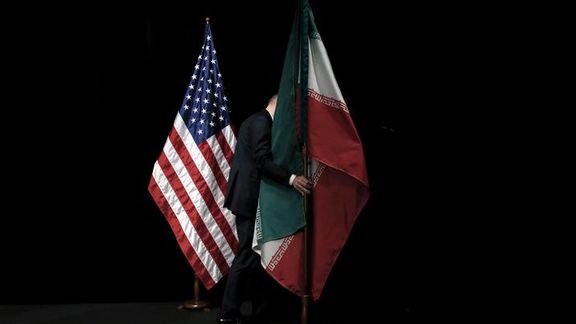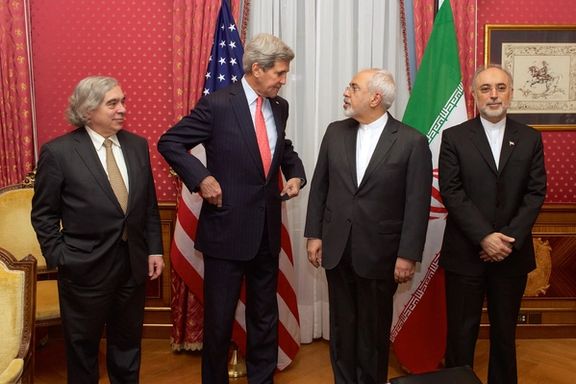Ex-Foreign Minister Says Iran And US Should Hold Comprehensive Talks

Iran’s former foreign minister Ali-Akbar Salehi in an interesting interview has implied that both Tehran and Washington share the blame for their negative relationship.

Iran’s former foreign minister Ali-Akbar Salehi in an interesting interview has implied that both Tehran and Washington share the blame for their negative relationship.
Salehi told Etemad newspaper that bilateral relations with the United States were fraught with negativity from the very beginning of the Islamic revolution and has remained so for 44 years. The two countries have negotiated on several issues in the past, such as prisoner exchanges, Afghanistan, and the nuclear issue, but they have never held comprehensive talks to resolve underlying differences.
“Now, considering all regional and international conditions, it is good and appropriate opportunity to hold multi-faceted political talks with the West, including Europe and the United States,” Salehi was quoted as saying.
It is said that Salehi was the Iranian negotiator who first launched talks with the Obama administration in 2013 in Oman to agree to start talks over Iran’s nuclear program. The process led to the signing of the Joint Comprehensive Plan of Action, JCPOA, or the 2015 Iran nuclear deal.
Salehi was foreign minister from 2010-2013 and he also headed the Atomic Energy Organization (AEOI) of Iran before and after his tenure as chief diplomat.

As head of AEOI, he was involved in the JCPOA talks, but the chief negotiator was then-foreign minister Mohammad Javad Zarif.
Salehi said that Iran had grievances against the United States during and after the revolution and it always expected an apology from Washington for alleged interference in its domestic politics in 1953, However, Salehi argued that when Secretary of State Madeline Albright once acknowledged US mistakes, Iran should have accepted it as an apology and smoothed out relations with Washington.
The former chief diplomat also had a message for hardliners currently dominating the government in Iran. “Some people mistakenly believe that being revolutionary gives them the freedom to act without bounds. However, the truth is quite the opposite. Being revolutionary demands the utmost thinking, rationality, and knowledge. A true revolutionary must be well-versed in political knowledge.”
Iranians should also consider the fact, that at the end of World War Two, it was the United States that forced the Soviet Union to withdraw from vast swaths of Iran’s territory, which Moscow could have easily colonized, Salehi pointed out. Americans and Europeans also did not understand the Iranian revolution in the late 1970s and were caught off guard, the former foreign minister argued. Many believed at the time that this was not a clergy-led revolution and suspected that the Soviet Union or China were behind it.
In short, as an Iranian regime insider, Salehi tried to present a more balanced view of the United States and urge comprehensive talks, that US presidents have on numerous occasions urged the Islamic Republic to agree to. However, Iran’s ruler Ali Khamenei who has been at the helm of power since 1989, has opposed wide-ranging talks, especially after 2018, when the former US administration withdrew from the JCPOA and imposed sanctions.
The Iranian regime wants to maintain is freedom of action in the Middle East, where it has built an arc of proxy forces from Yemen to Iraq and Lebanon. The regime has also isolated the country from the international economy, maintaining an overwhelming system of government ownership of major companies, banks and media.
Salehi, viewed as one of the more balanced and polished Islamic Republic officials, has occasionally spoken out in the past two years urging better governance, democracy, and a stronger economy.
Last November, current foreign minister Hossein Amir-Abdollahian invited his predecessors, including Salehi for a “friendly meeting and discussion” that local media called as urgent in nature. This was during fierce anti-regime protests and after talks to revive the JCPOA reached a deadlock.